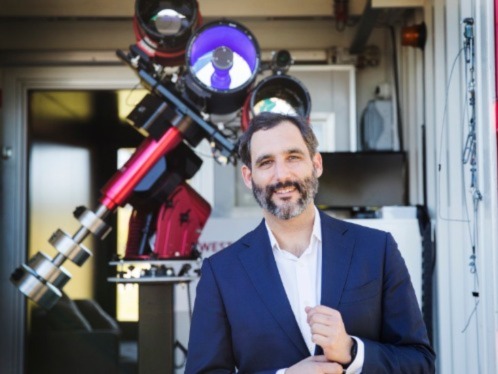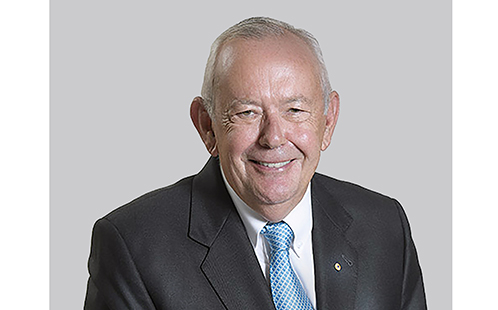Western Sydney University and Swedish Space Corporation sign MOU to strengthen space capabilities in Australia and Europe
 Associate Professor Gregory Cohen, Deputy Director and program lead of Space Applications at Western Sydney University's International Centre for Neuromorphic Systems with the Astrosite mobile space observatory.
Associate Professor Gregory Cohen, Deputy Director and program lead of Space Applications at Western Sydney University's International Centre for Neuromorphic Systems with the Astrosite mobile space observatory.
Western Sydney University’s International Centre for Neuromorphic Systems (ICNS) has signed a Memorandum of Understanding (MOU) with the Swedish Space Corporation (SSC) in a move to formalise and strengthen international space observation research partnerships and collaborations.
The MOU will facilitate the sharing of research data and analytics, and the co-location of vital space observation technology and neuromorphic sensors to complement new and existing international space observatory infrastructure for research and commercial purposes.
Focusing on Space Situational Awareness, the University’s Astrosite mobile space observatory will be utilised for joint space observational campaigns at sites within Australia in the Southern hemisphere, and potentially co-located in future European sites in the Northern hemisphere.
Associate Professor Gregory Cohen, Deputy Director and Program Lead for Space Applications at ICNS says the collaboration and sharing of data between the two institutions brings exciting new potential for research and development of advanced Space Situational Awareness capabilities.
“We are very excited to be working with Swedish Space Corporation who are an active and important member of the European Space community. Our new partnership will allow our team to further our reach internationally and introduce our technology and solutions to the global space community,” said Associate Professor Cohen.
“Synching up multiple Astrosite observatories in the Southern hemisphere, and possibly the Northern hemisphere in the near future, will allow us to gather more data than ever before that will be mutually beneficial to the global space sector,” he said.
Jacob Ask, Space Situational Awareness Program Architect at Swedish Space Corporation says as part of a new Space Situational Awareness program, the SSC are developing a modern surveillance and tracking capability in Western Australia that will link and share data with Australian and potential future European sites as outlined in the MOU.
“This is an exciting development both for us as a company and for our future collaborations in Australia. SSC will engage heavily in joint observation campaigns with Western Sydney University and our other partners, including data fusion, data sharing and other activities,” said Mr Ask.
The agreement will be in effect until 31 December 2023, with both parties seeking to jointly apply for funding support from their respective national space agencies, as well as the European Space Agency to develop and run projects of interest to the international space community as part of international outreach.
ENDS
17 May 2022
Danielle Aiken, Media Officer
Photo credit: Michael Amendolia
Latest News

Opinion: What do we lose when our old suburbs disappear?
I live on the edge of Parramatta, Australia’s fastest-growing city.

Opinion: Most bees don’t die after stinging – and other surprising bee facts
Most of us have been stung by a bee and we know it’s not much fun. But maybe we also felt a tinge of regret, or vindication, knowing the offending bee will die. Right? Well, for 99.96% of bee species, that’s not actually the case.

Western Sydney University receives transformational donation to support LGBTIQA+ community
Western Sydney University has welcomed a philanthropic donation from The Brennan Lynch Foundation.
Mobile options:

